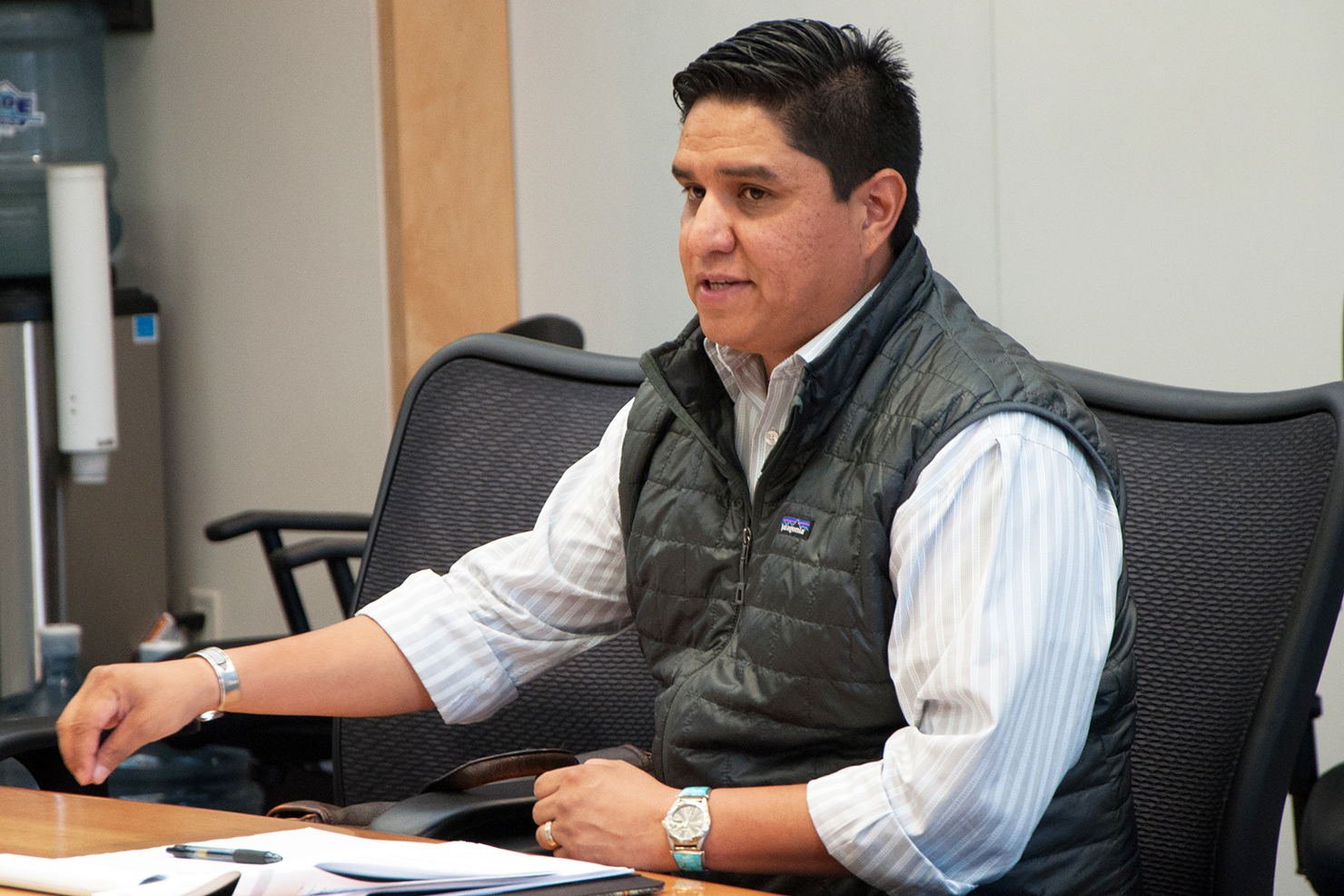Across the country there has been a lot of attention on offensive Native American mascots and team names. Everyone across the country feels differently about it, even in Indian Country there are people who think the mascots or team names are not a cause for concern.
However, here in Colorado, the Commission to Study American Indian Representation in Public Schools, was formed to work together with schools around the state that have American Indian Representations – such as mascots, team names, and caricatures.
After visiting four of the 30 schools around the state with American Indian Representations the commission released its report to Governor John Hickenlooper. The report included four guiding principles that can be taken on by communities, schools and state organizations:
Elimination of derogatory mascots, imagery and names.
Schools to enter into formal relationships with federally recognized tribes to retain their American Indian imagery.
Local control by elected boards of education and the community is recognized, but those in charge can still choose to listen, discuss and share information about American Indian mascots.
Promote and support American Indian history, culture, and contributions in our public schools and districts.
Also included in the report were letters of support from the Southern Ute and Ute Mountain Ute Tribes.
On Monday, April 25 Ernest House Jr., executive director Colorado Commission of Indian Affairs, met with Tribal Council to review the report and start discussion about the plan going forward.
A main goal is for the efforts to keep going, House said. The commission has accomplished a lot in the short amount of time and the goal now is to keep the momentum moving forward.
Southern Ute Chairman Clement J. Frost said he thinks continually educating communities is one of the best ways to keep the momentum.
“I think that a lot of education needs to be done,” Chairman Clement J. Frost said. “Educate them in a positive way … we can have workshops for them on [Native American] cultures.”
Agreeing with Frost, House said from visiting the schools some of the communities have minimal Native Americans in their districts and never had a tribe approach them before.
Some of the community members didn’t view the terms or caricatures as offensive, but seen them more as paying tribute to Native Americans, he said.
“Part of educating would be explaining where the terms come from and other definitions of the terms so people realize it is offensive,” House said. “The more and more the education gets out, even to our own people, the more it will help to continue the conversation and create change.”
House also said the issue is bigger than mascots, it’s also about getting more awareness of Native American culture into Colorado schools.
“Native Americans are 2 percent of the total State population in Colorado. If we only rely on that 2 percent and we are waiting on that 2 percent to ruffle feathers we are going to be waiting a long time,” House said. “We need to make partnerships like these communities, like these school districts … to be able to raise our voice at the state level and national level so that the 2 percent becomes … much larger than that.”
Though some may not view the issue of offensive mascots and educating schools on Native Culture as a dire concern for the tribe, Councilman Alex S. Cloud said the whole process taking place now is necessary for future generations.
“It’s not just the mascots … it’s about the education, it’s about our kids,” Cloud said about the importance of the issue to Southern Utes.
Council Lady Amy J. Barry talked about a conversation she had with a young tribal member who felt like the mascot issue was a waste of time. He felt the issue was never ending and Native Americans would always be looked down upon, she said.
That really struck a chord with Barry, and she said empowering the youth to have a voice and to stand up and be proud of their Native American identity is, for her, the main point – more so than the mascots.
Barry also said the educational component is extremely important. The history of the Utes and all Native Americans needs to be taught in schools accurately, she said.
Going forward, House suggested to Tribal Council that a resolution from the Southern Ute and Ute Mountain Ute Tribes that states the tribes do not condone offensive mascots or team names on the local level would show the tribes’ commitment to the cause.
At the next CCIA meeting, June 3 in Towaoc, Colo., both tribes will discuss the plan going forward with local and state representatives.

